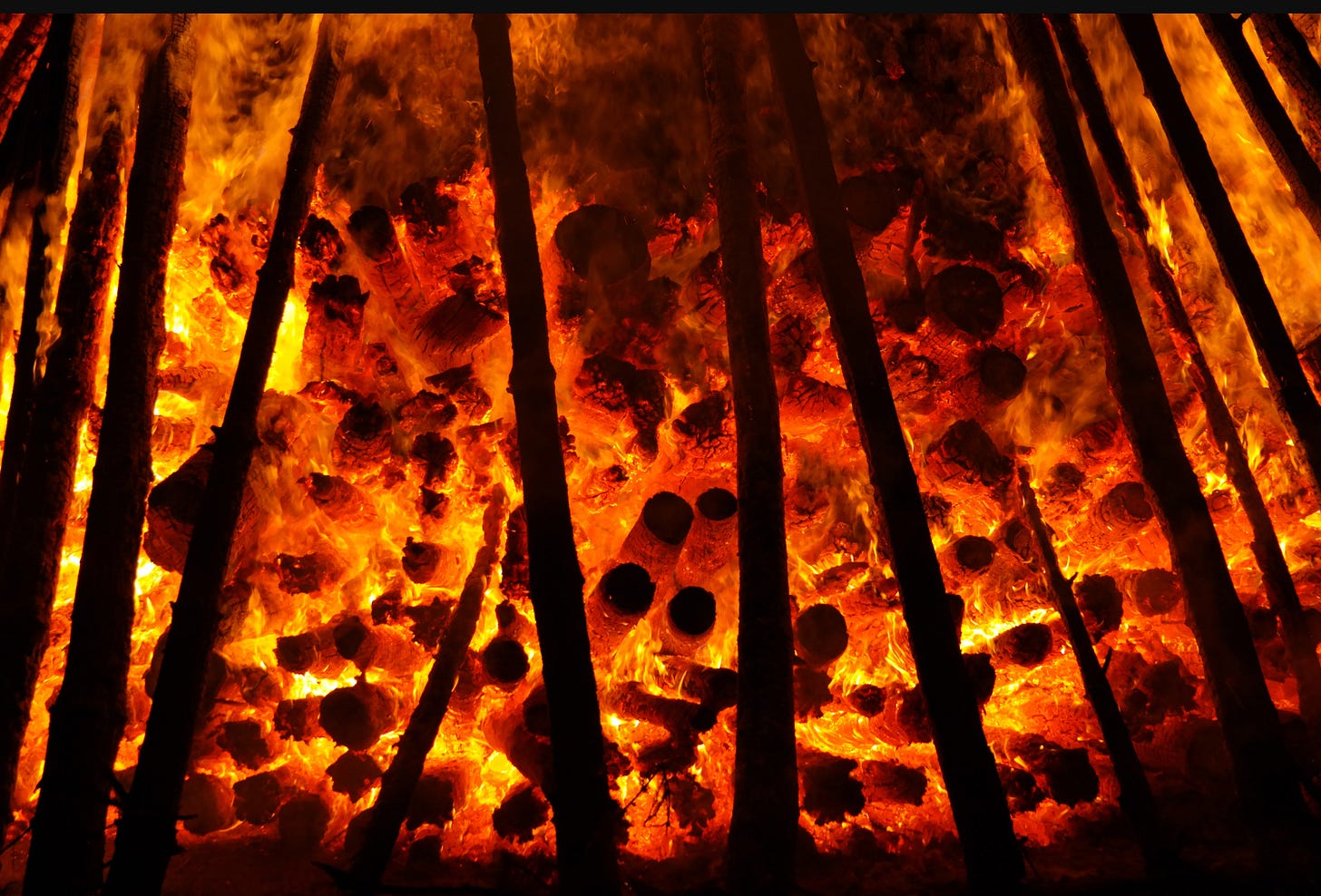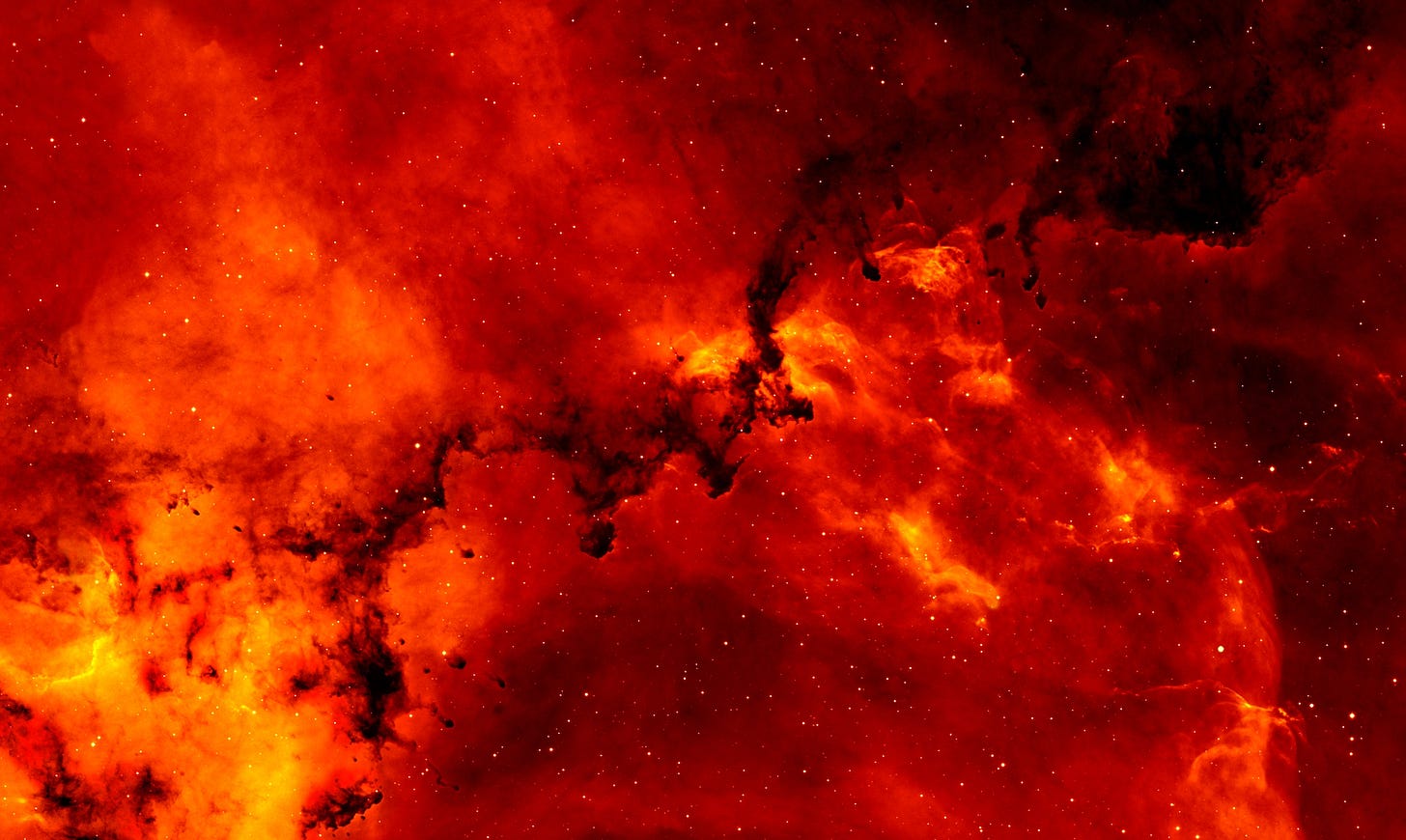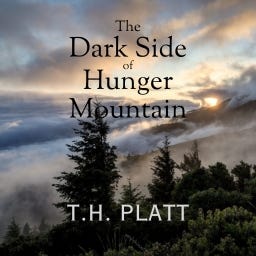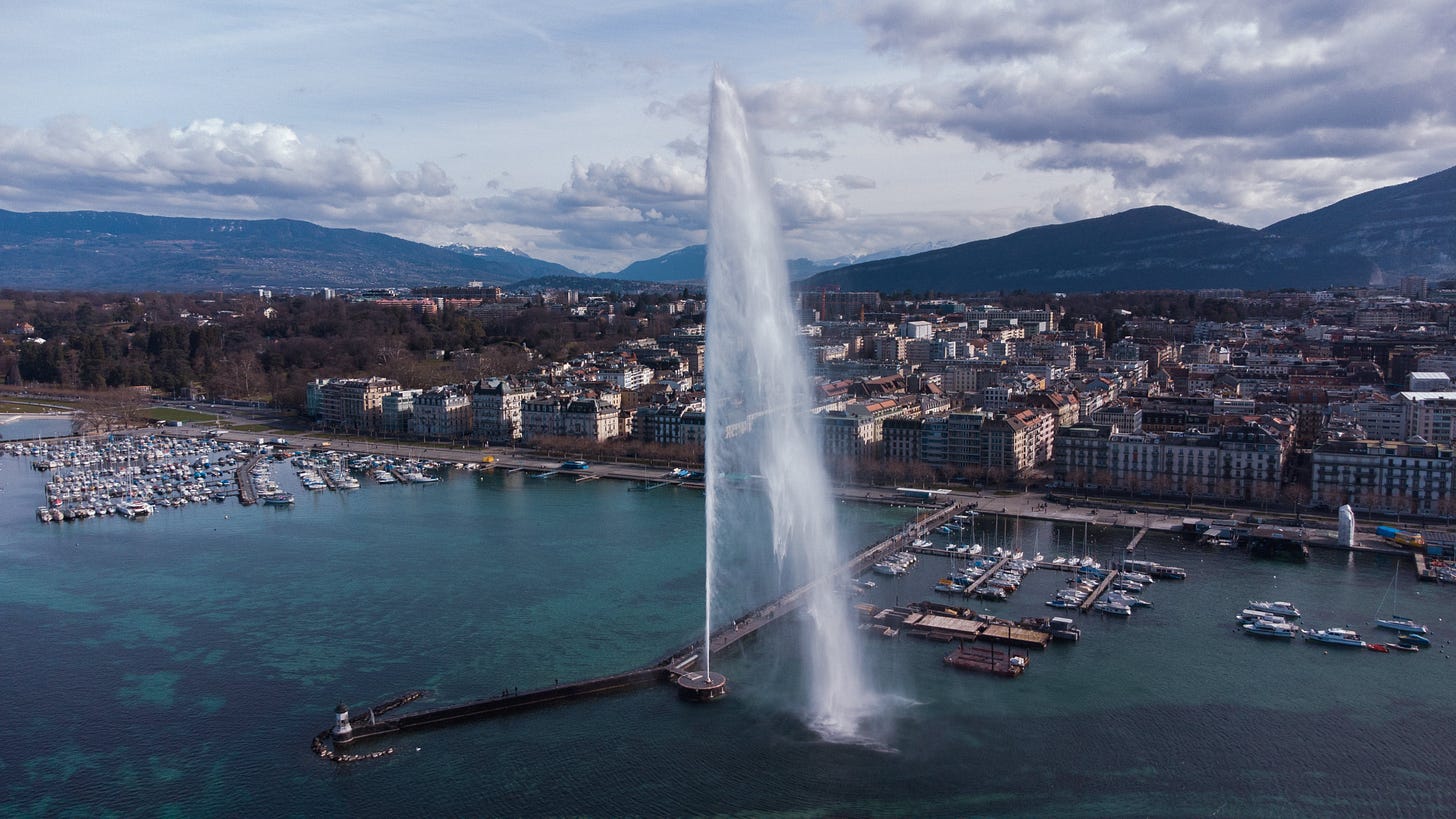T. H. Platt is one of the most knowledgeable people about the catastrophe wrought in rural regions all over the world. Everyone in the fight knows her. She put in time as director of The National Center for Public Policy Research’s Environment and Enterprise Institute and her family were fishers on the West Coast. She knows where every body is buried, in that hackneyed phrase, and she has written a novel which painlessly describes what has been going on.
August used to be a time to read novels, but now, our sociopathic overlords have made the summer doldrums into pain and chaos. The Dark Side of Hunger Mountain is both an escape into a parallel world, and confers knowledge you will find nowhere else. You will come out of it fully enlightened about one of the battlefields of the modern era.
I highly recommend it. It is compelling, deeply dramatic, and reminiscent of novels when they meant something. Here is the first chapter. The rest are on her Substack, linked below.
CHAPTER 1: Wildfire!
On the mountain, the wind changed direction and the man turned to face it. It was warm, menacing, carrying the familiar acrid scent of flame consuming forest.
The man climbed into his truck and threaded his way up the steep hairpin curves, slick with water coursing across gravel. He downshifted hard and the gun rack shivered behind his head, the toolbox rattled in the flatbed. Every bolt holding metal clattered and creaked in protest, and he savored the familiar rush of adrenaline. The oversized tires on his 4x4 held and the rutted logging road disappeared below.
On the peak, he stopped in a spray of gravel and mud and unfolded himself from the cab. Here the Olympic’s icy breath bit his ears and nose and he turned up the collar on his thick sheepskin coat. A sickly sun hovered eerily, shrouded in smoke, barely illuminating the waves of gray and green timberlands rolling to the horizon.
Jackson Armstrong knew every mist- and smoke-shrouded slope and valley beneath him. He knew every settlement, every campground, even the illegal ones hidden behind rocky ridge lines rising to wicked peaks of wind and snow.
He pulled off his right leather glove and fine-tuned his binoculars. Two ridge lines over, fire took its share of beetle-infested blow down. The beast gorged on fuel, making its way up evergreens which whipped wildly in protest before being lost in plumes of flame.
Fed land, he thought, studying areas where gray smoke swirled through white. There, he knew, the fire crew was making progress.
Jackson felt the northern wind quicken and turn and he studied a new glow. It coiled, billowing black smoke as it picked up speed, determined to join its mate on the far side of Hunger Mountain.
He flipped on his radio. “Captain 12, Armstrong Tac 2,” he said. A beat. Static.
“Captain 12,” crackled the voice of Tim Miller.
“Tim, there’s a new burn crossing below you,” said Jackson. “Heading up the flats to the north side of Hunger Mountain.”
“Another? What the—” said Tim as he studied the sky in his yellow and green Nomex top and pants. “How long we got?”
“Fifteen,” said Jackson. “Maybe less. Can you make the ridge?”
“We’re on it. Out,” said Tim, turning to direct his crew. “Up the mountain! Go! Go! Go!” To his radio, he said, “Command, Captain 12. Requesting water drop. North ridge, Hunger Mountain. Over.”
A short beat and a voice confirmed, “Captain 12, Command. Copy that. Water drop. North ridge, Hunger—” Static.
Tim moved up behind his crew, choosing his footing carefully, past the tree line and water trickling over rock from a fissure above.
One young man lost his footing and another’s hand grabbed his. “Gotcha,” said David Lopez pulling Chris Franklin up. They joined the rest of the crew who tried to ignore the flames wicking up behind them as they furiously hacked at anything that might provide fuel—at that elevation, there wasn’t much; it was mostly bare mineral soil and boulders left behind by glaciers that retreated long ago.
“Forty-foot cut, breadbox pattern on me!” yelled Tim, gesturing where he wanted shelters laid. Flames licked their way up the slope, belching smoke and the temperature rose as the crew carved out body-sized depressions in the ground. Like digging a grave, thought Tim as he spit out soot. “Deploy!” he yelled.
The crew tossed their equipment aside and pulled silver-colored bricks from their packs. Embers swirled around them as they tore red pull rings and removed the clear plastic covers. Holding LEFT and RIGHT tabs, they shook out the “shake and bakes,” letting them billow and capture as much air inside as possible.
Each crew member stepped on one end of their shelter, slid their arms into the hold-down straps, wrapped themselves in the material, and—while folding the edges of the foil under their bodies—dropped and rolled into the depressions they’d carved out on the ground.
At the end of the tightly packed line, Tim yelled, “Sound off!” as he enfolded himself in his own foil shelter.
“Franklin, inside!” said Chris into his radio. This was followed by brothers David and Carlos Lopez, Anders Hansen, and Erica White. “Captain Tim Miller, inside!” completed the roster.
“I love you guys,” whispered Erica into her radio.
“You know it!” said Anders.
“We’ll make it,” said David. “Terrain’s on our side.”
“If I don’t, tell Momma and Beth I love ’em,” said Chris.
“We’ll be fine,” said Anders. “The fire won’t park, but it’ll get hotter ’n hell.”
“Nuff talkin’, save your air,” said Tim. “Belly to the ground, nose in the dirt!”
The crew went silent, positioning their gloved hands around their faces, focusing on slowing their breathing and heart rates.
<><><><>
“Where’s that water drop?” demanded Jackson on his radio.
“Five minutes out,” replied a voice as Jackson watched flashes of silver foil and then an eighty-foot paw of fire arch up and over Hunger Mountain—it was gone; they were gone, lost in smoke.
Jackson remembered, years ago, when a rogue wind brought down a wildfire on top of his crew. He remembered that sound, like a freight train—the licking, feeding beast of flame roaring over them, inches above their bodies.
Jackson remembered the thin foil shields fluttering in the hot wind as the temperature rose and embers pelted the thin material. Held inside, precious air—for insulation, for inhalation—all they would have to breathe for the longest minutes of their lives.
The crew would grit their teeth against the heat, Jackson knew, and bury their noses in the dirt where the cooler air lay. Their sweat would convert to hot steam, blistering the skin on their backs, ears and necks. They would battle unconsciousness from lack of oxygen.
No atheists during a storm at sea or a firestorm on shore, he thought. God, for those you choose to take, let them sleep, Jackson prayed as he thought about each of them up there on Hunger Mountain:
—Tim, thin with a cockeyed grin in his craggy face. If anything happens to him, his wife and three kids will be lost, thought Jackson.
—Anders, with his wild hair and great laugh, so much like his father. A dynamo on the guitar and computer.
—Chris, a plump kid, now slimmed down to firefighting weight. He looked good, knew it and had won the heart of a woman he loved as much as his mother. They are happy, those two, thought Jackson.
—Brothers David and Carlos. David, dark like his father; Carlos more like his mother. Big dreams, thought Jackson. David wanted to be a fireman in San Diego where his girlfriend lived and Carlos, besides being an auto tech capable of fixing anything, was an artist and free spirit. He made music on his computer, designed jewelry, yearned to travel. Carlos, Chris and Anders played in a band at the local bar. Not half bad either, thought Jackson.
—And then there was Erica, the pool shark. She’d taken Jackson for 20 bucks when they’d played last week. Tired of pushing the rogue strands of blond hair away from her eyes, she’d hacked them off. Looks like a pixie, he’d thought, but didn’t tell her. In a gingham shirt and beat up jeans, frayed at the knees, she’d chalked her cue and smiled that shy little smile of hers. Go again? she’d asked.
Jackson fell to his knees on the rocky ground. Please, God, protect them, he begged.
<><><><>
On the northern ridge on Hunger Mountain—in the heat, the unbearable heat—the crew groaned from pain as the flesh boiled on their backs.
“Help me, God!” cried Erica and she rose slightly, breaking her shelter’s seal to the ground. Superheated air flooded in, blistering her mouth and the passages to her lungs. As she suffocated, Erica’s cries turned to moans, then faded away into merciful silence, lost in the fire’s crackle and hiss.
Huddled in their silver cocoons, the men’s tears evaporated, rising, mingling with the plant and human carbon spiraling upwards, disappearing into the ether high above Hunger Mountain.
CHAPTER 2: He Knows Everything
CHAPTER 3: Thoughts from Thoreau
Welcome to Absurdistan is entirely reader-supported, and as such counts as fully independent media. Please support me with an inexpensive annual subscription.











I was on a forest firefighting crew for a couple of seasons in the ‘70s out of Crested Butte. On a fire near Grand Junction our little squad of 7 nearly got crisped. Fires get named. This one was the Rockpile Fire. At the base of a large mesa is where we were ‘mopping up’ a fire that was mostly out. Me and another guy Rick Borkevic, who was an excellent ski jumper, each ran a chainsaw. The other 5 cleared brush and carried ‘piss bags’ backpacks to put out teeny persistent fires. Rick and my chainsaws both ran out of gas at the same time so our little group thought hey let’s take a break.
The Forest Service handed out the space blankets described in chapter 1 and told us the purpose of them. Nobody ever said it that I heard but I told myself um no if an out of control fire is coming then I’m hauling a**! There’s no way, no how a fire is catching me.
Back to Rockpile. Looking up we could see the rim of the mesa. Right at its base is a millennia of boulders calving off. The forest and the fire is just steps away from the boulders encircling the mesa. Suddenly a wind is kicking up. Moments later a tree bursts aflame about 50 yards upwind of us as we are casually sitting around. And then, presto change o a wall of flame appears right in front of us. It’s moving. Wordlessly we 7 are up moving as well. No one is yelling “over here guys follow me!” There is no time. It’s become obvious in a heartbeat that downwind is forest that will presently be consumed. Laterally though are the rocks of the aptly named Rockpile. Talk about 7 guys clambering up rocks in hurry, yeah we’re running for our lives. While climbing up the vivid colors of the fire are reflecting off the rocks. I had a sense of oxygen being sucked past in order to feed the fire. And then, we were positioned to watch the fire go by.
At the time it just another day in Colorado. But it was rather significant for me. I became aware of not being quite as virile or bulletproof as I’d thought. Still, those were the days. Growing up in flatlands of Texas I’d heard of something called ‘ski bumming’. My parents weren’t impressed. They suggested working a job for forty years then go skiing. Anyway, skiing as a full time hobby takes some dollars. As a ‘casual’ fire crew we were called when there was a fire. Pay was hourly. We liked fires. It was an effective way to rack up hours. This one almost got us.
How do you create fifteen minute cities? In Slavelandia you blame the peasants. Rockthefeller and Maurice Strong-their evil marches on.